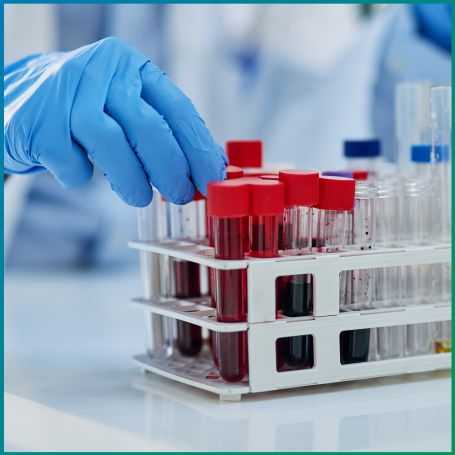
The Typhifast IgG test is a serological test used to detect antibodies against Salmonella typhi, the bacteria responsible for typhoid fever.

This test is particularly important for diagnosing past infections and assessing immunity to typhoid. Unlike traditional Widal testing, which can yield false positives, the Typhifast IgG test provides more specific results, helping healthcare providers make informed decisions regarding diagnosis and treatment.
The Typhifast IgG test is significant for several reasons:
1. Accurate Diagnosis: This test helps confirm past infections with Salmonella typhi, especially in patients presenting with symptoms of typhoid fever.
2. Assessment of Immunity: The presence of IgG antibodies indicates previous exposure to the bacteria, providing insights into an individual’s immunity status.
3. Guidance for Vaccination: Results can inform healthcare providers whether a patient may benefit from a typhoid vaccination, especially for travelers or individuals in endemic areas.
The Typhifast IgG test is recommended for Individuals with a history of fever or gastrointestinal symptoms suggestive of typhoid fever. Patients with previous typhoid infections seek to determine their immunity status. Travelers to endemic regions who want to assess their risk and consider vaccination options.
At Diagnopein Diagnostic Center, we are committed to providing exceptional healthcare services with a focus on affordable pricing, advanced technology, and accurate reports in a clean and hygienic environment. Our skilled staff ensures that each test is performed with precision, delivering timely and reliable results. By choosing Diagnopein, you can trust that your health is in capable hands.
1. Typhi IgG
At Diagnopein, we strive to provide results for the Typhifast IgG test within 24-48 hours, allowing for timely follow-up and management.
The test involves a simple blood draw to collect a serum sample for analysis.
A positive result indicates the presence of IgG antibodies against Salmonella typhi, suggesting a previous infection. A negative result indicates no detectable antibodies.
Generally, no special preparation is necessary; however, it's advisable to consult your healthcare provider for any individual instructions.